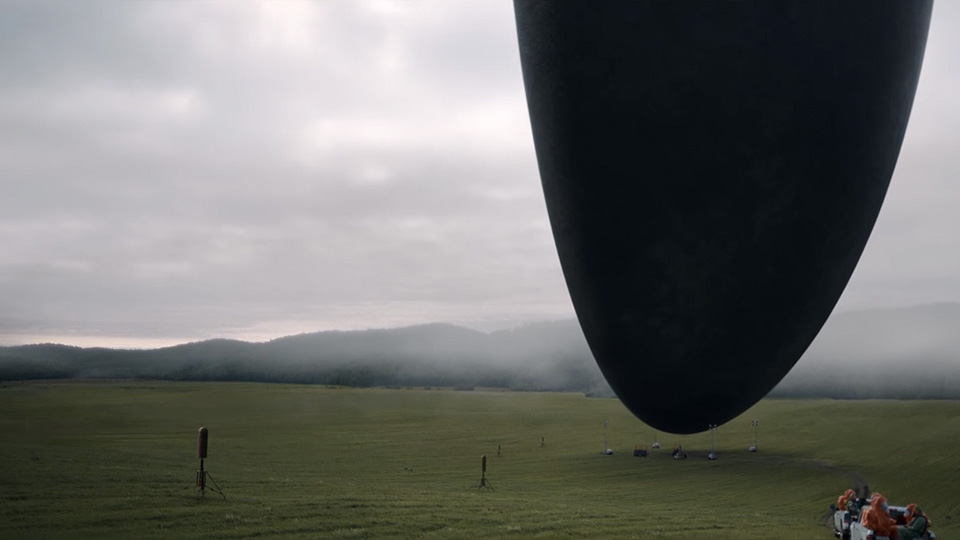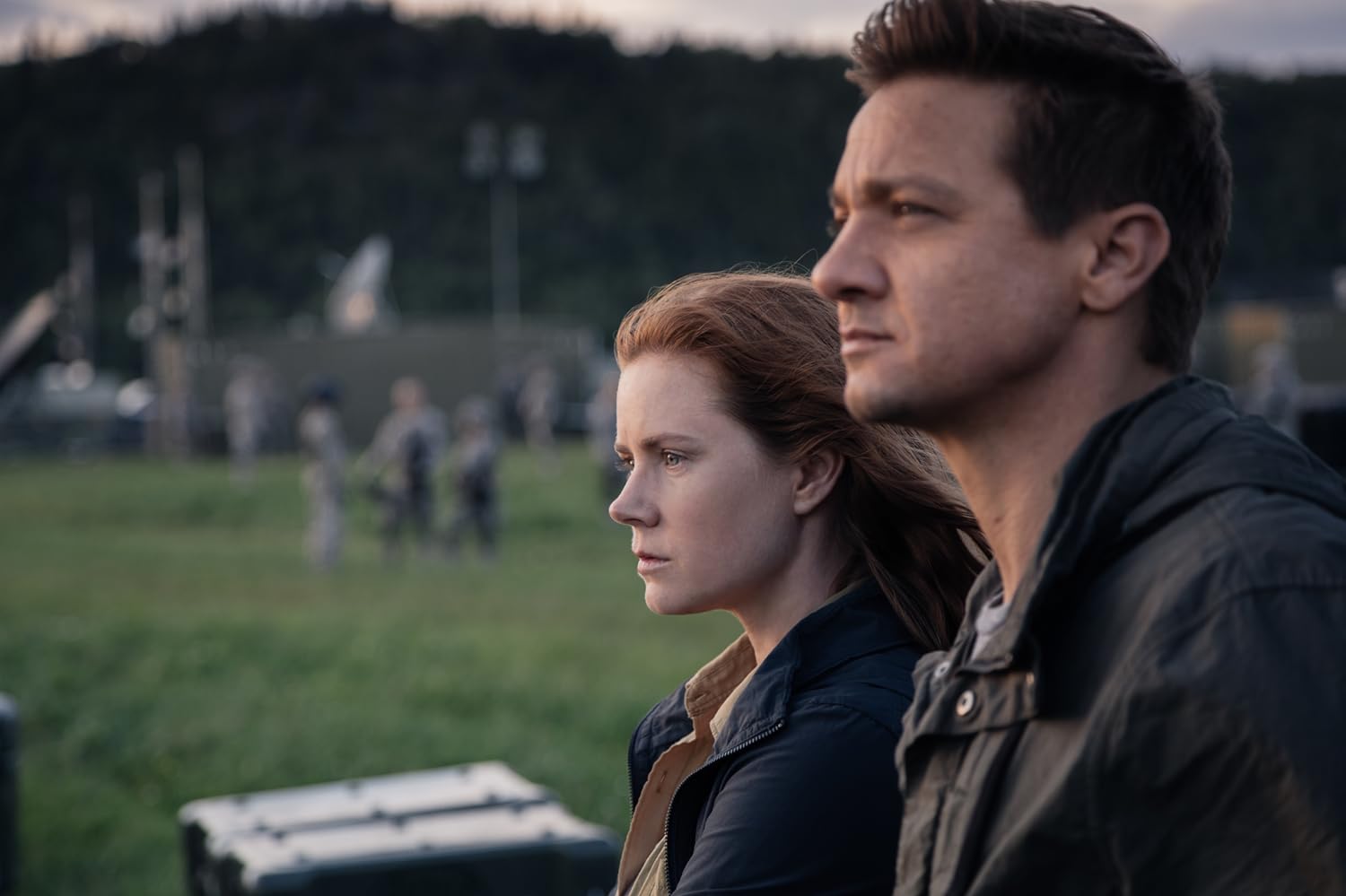Dr. Louise Banks: Despite knowing the journey... and where it leads... I embrace it... and I welcome every moment of it.~from Arrival (2016)Arrival (2016), starring Amy Adams as Dr. Louise Banks, is not a typical alien encounter movie in that what the main character learns about life on earth is as fascinating as meeting the creatures from outer space. And fascinating they are indeed. (Warning: contains spoilers!) From their ominous-looking ships to their seven-legged blob-like forms, the "heptapods" as they are called radiate menace and benevolence in equal doses, as far as the scientists and scholars watching them can tell. According to Ars Technica:
Louise (Amy Adams) is a gifted linguistics professor who has done some spot work for the government translating videos made by foreign insurgents. As the film opens, her quiet classroom life is disrupted permanently when a dozen enormous spaceships materialize over seemingly random regions across the world. Made of no materials we recognize, and emitting no chemical signatures whatsoever, the ships hover like perfectly curved stones just above the ground. Twice per day, an opening appears in the bottom of each ship, admitting humans into the gravitationally bizarre interior to meet with squidlike aliens who hover in what seems to be an atmosphere chamber behind a transparent barrier.Throughout the film, Louise appears to be having visions of what I first thought were of the past but by the end of the film it is evident that the visions are of the future. By learning the language of the heptapods, Louise has begun to experience time the way they experience it. She is given glimpses of herself as the happy mother of a beautiful little girl who dies of cancer as a teenager. In the beginning, I thought it was a tragedy from which Louise was recovering but by the end I realized that it had not yet happened. Yet when given a chance to change her future, Louise embraces it instead. As Vox describes it:
Dubbed heptapods for their seven legs, the aliens make noises that are completely incomprehensible. When military officer Weber (Forest Whitaker) plays a recording of one to Louise, demanding a translation, she can’t even figure out what kind of organ could produce the noises. “Do they have… mouths?” she asks, bewildered. Despite her initial confusion, Louise manages to crack the alien code by using writing to communicate with them rather than speech.
And this is where the movie goes from pretty good to superlative. We watch as Louise and her colleagues—including astronomer Ian (Jeremy Renner)—decode the heptapods’ writing using data analysis. Each heptapod “word” is actually a sentence with neither a beginning nor an ending, squirted out of the aliens’ fingers like squid ink into graceful circular shapes whose squiggly contours are units of meaning. Ultimately Louise realizes that this writing system reflects the way the heptapods view time itself as a non-linear experience.
What makes this movie a science adventure on the order of The Martian is the fact that it all hinges on the subtleties of translation. Linguistics are key to the action. When humans across the globe finally know enough heptapod language to ask the aliens why they’ve come to Earth, the answer is a blobby ring of a sentence that’s very difficult to interpret. Is it a promise of danger? Of friendship? Or something so alien that we can’t really know? Each country comes to its own conclusions, and global tensions mount.
Throughout the dealings with the aliens, Louise is working with a scientist named Ian Donnelly, who turns out to be her future husband and the father of the child who will die. After the heptapods fly away, Ian says to Louise: "You know I've had my head tilted up to the stars for as long as I can remember. You know what surprised me the most? It wasn't meeting them. It was meeting you." It is then that we realize that what is truly extraordinary is all around us, in each other, and in the here and now.Knowing the destination doesn’t change how rewarding the journey can be. Louise, to some degree, has even more appreciation for her own life, because she knows all the spoilers are coming. How often have you thought about how you might have done something differently, had you known that everything was about to change, or that a loved one was going to die, or that you were going to lose that job? Louise really gets the chance to cherish those moments — but she can’t change a thing.
Share





















No comments:
Post a Comment